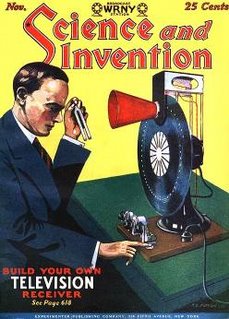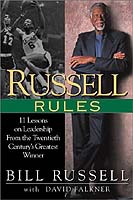Lots of updated buzz recently on the newly dubbed “Webtop,” claimed to be the natural evolutionary successor to the electronic “desktop.” (In quotes because, remember, the original "desktop" is the one that your computer now covers.)
Google, Microsoft and many others imagine that you’d rather use a word processor running on their server farms than one installed on your own, once-“personal” computer. But as of this point in history, the highly touted promise of web-based applications just sounds like a Really Bad Idea (RBI).
(Excuse the interruption, but I’m informed that, especially since it’s the first week of the baseball season, we need to find another HTA -- High Tech Acronym -- for that.)
Think you’re dependent on an Internet connection now? What if you’ve got a thought that you want to get down right away, or a string of numbers you want to add up? Better lay in a supply of pens and yellow pads. If your thinking is as connected to words on paper/screens as mine is, you’re surely going to need them. We're just not there yet, or even very close.
Why, just take the recent case of injured blogger (and NBA hoop artist) Gilbert Arenas, who recently wrote about the hardships of being on the bench during his team’s stretch run to the playoffs. "I think the worst part was that my Internet connection wasn't acting right, so my video game session wasn't working. It kept kicking me offline. So, when you're injured, and video games [are] your life and you can't play, it just makes the injury that much worse."
This guy is a jillionaire, but he was as helpless as you or I when his Internet connection was down. What if he needed to do something
important?
But let’s move on to more serious examples. Exhibit B: As it happens, this provides me with the perfect opportunity to rant about… I mean,
comment, with oodles of cool, rational objectivity, on the truly dreadful state of
Verizon’s DSL customer service.
In my recurring sideline as an indie tech support troubleshooter, I’ve had the delightful chance to spend hours on the phone with Verizon’s woefully under-trained and otherwise unprepared customer service people. And I mean sometimes hours
per customer.
It is simply a nightmare. And I want to make it plain that I don’t blame the individual support reps; I’m sure they’re very bright people. Nor do I consider it a reflection on the country these folks are obviously sitting in, in the middle of the night on the other side of the world.
But it really does appear that Verizon, like other solely cost-conscious companies, is trying to do way too much too fast, following the custom of the software industry of working out all the bugs on the general population. One customer was given the most astonishing array of conflicting answers in a series of phone calls that you couldn’t believe they could possibly be from the same company. But sadly, they were.
Then there’s the language problem. I had one conversation where I explained the problem over and over, as clearly and slowly as I could (a no-connection error message dialog that would not go away, interpreting the Cancel button as meaning, “Try again!”), whereupon the support lady’s repeated response was, “Okay, can you explain what problem you are having?”
It was over a half an hour, what with on-hold time and all, before she decided the error message was coming from another department’s turf, and transferred me to someone else. That next rep was a very competent, clever person – her name was Rita, who I believe was sitting in Mexico – who I spent another hour on the line with, as she talked me through a series of command-line exercises.
When we were done, an hour and a half later, all was good – until the next time I rebooted, whereupon the exact same problem reappeared.
The
New York Times’ David Pogue recently reprinted a surrealistic transcribed
conversation from a Dell customer support call to that same country that I don’t want to blame, but where the people speak a version of English that most Americans find pretty much inscrutable. (That single post attracted
153 "yeah, me too, dammit!" comments.)
I really do feel sorry for those people, because for them this surely must qualify as the High-Paying Job From Hell. Because even when they probably only receive the same dollars per hour as someone starting at Borders Books in the U.S., (where, last I heard, they generously offer the minimum wage,) apparently that’s a lot of money over there. But imagine what they say about
us when they’re released from their cube-farm stalls in the morning.
These travesties all come from companies that make their decisions based solely on the short term cost. But they are seriously failing to consider the Total Cost of (customer) Ownership. If the cable companies came up with a competitively priced offering, Verizon would be out of broadband contention in very short order, and deservedly so.
 It's the late pianist Vince Guaraldi's soundtrack for "A Charlie Brown Christmas," performed by him and his trio for the original animated special from 1965. Here are the lyrics; and even better, the entire album (including the equally poignant instrumental version of the song,) can be heard as free streams on Download.com Music, courtesy of the publisher, Concord Music Group.
It's the late pianist Vince Guaraldi's soundtrack for "A Charlie Brown Christmas," performed by him and his trio for the original animated special from 1965. Here are the lyrics; and even better, the entire album (including the equally poignant instrumental version of the song,) can be heard as free streams on Download.com Music, courtesy of the publisher, Concord Music Group.















